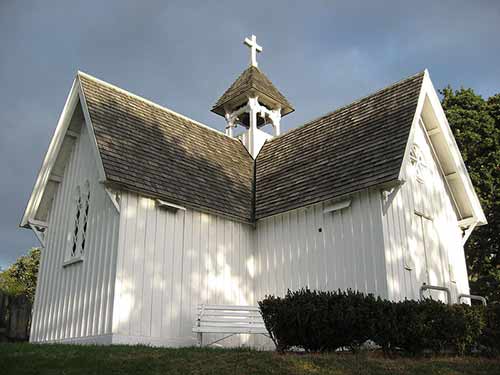
My solution to unlawful material in NZ Anglicanism: rescind them, we don’t need them.
It would be churlish to oppose Statute 711 of New Zealand Anglicanism’s General Synod Te Hinota Whanui (GSTHW) without providing for some thinking through of an alternative solution to the problem that it is trying to address.
Statute 711 intends to change the Constitution (that’s big deal – so we need to be sure we understand what we are doing, and we need to be sure it is required and why), and so, having passed at GSTHW, it needs to be passed in the majority of the seven New Zealand dioceses, the Runanganui of Te Pihopatanga (Tikanga Maori), and the Diocese of Polynesia. If it passes the majorities there, it returns to GSTHW, and if it passes there then, after a year allowing for someone to object, the change is enacted.
Last weekend the seventh (Tikanga Pakeha) diocesan synod met. All seven have now not assented to Statute 711 to alter the church’s constitution.
The Notes originally with Statute 711 (this was Bill 4 at GSTHW2014) acknowledged that, for years now, our church has been acting with a canon (Title G Canon XIV) and a Standing Resolution (SLR3) which are inconsistent with our 1928 Act of Parliament and lack fundamental authorisation in the first place. [The Notes I mention may not have been presented at each diocesan synod].
In brief, this Canon and Standing Resolution were intended to allow tikanga and bishops to authorise experimental services. They would possibly have been useful in a church with very tight liturgical rules. We are not such a church.
The question that was asked of our best legal brains was, how can we make Title G Canon XIV and what Standing Resolution (SLR3) provides, legal? That was the wrong question. The right question would have been: in a church with incredible flexibility, do we need anything akin to Title G Canon XIV and what Standing Resolution (SLR3) provides, or will such a thing just increase confusion?
From the time our church passed, as agreed formularies of our church, A Form for Ordering the Eucharist (allowing it to be used for any eucharist without restriction), An Alternative Form for Ordering the Eucharist, and, for a non-eucharistic service, the omni-flexible A Form for Ordering A Service of the Word we have had no use for that Canon or Standing Resolution. I cannot find anyone who can give me a service that we are not allowed to use, that we want to have the ability to use, and that Statute 711 would allow us to use.
My solution to the problem that Title G Canon XIV and a Standing Resolution (SLR3) are actually unlawful: rescind Title G Canon XIV, and rescind Standing Resolution (SLR3). Doing so will not lessen what our church is able to do.
I will write a similar post for the other GSTHW statutes that have not received diocesan synodical assent.
ps. One of the changes that this year’s meeting of GSTHW effected was altering Te Waipounamu Hui Amorangi to the Diocese of Te Waipounamu. Someone else may be better at explaining what this means, and what the consequences are. Until now the church has been very, very careful (it seems to me) to distinguish a ‘diocese in New Zealand’ from episcopal units within Tikanga Maori/Te Pīhopatanga o Aotearoa. A ‘diocese in New Zealand’ has particular rights under the church’s constitution. Has the Bill making Te Waipounamu a diocese altered its status? Is it increasing confusion? If so, it seems a very surprising action for GSTHW to have taken at the very same meeting when it seemed to be attempting to tidy up inconsistency that it acknowledged it had created relating to that constitution.



Rescind!
It reminds me of an old story about a British commander who took the (then) Indian province of Sind. In those days every colonial adventurer had learned Latin at school so the telegram simply read, Peccavi.
I have sinned!
Does this mean that liturgical “creativity” in the Anglican Church in Aotearoa/New Zealand and Polynesia is going to be reined in? If so, Deo Gratias! You have two excellent prayer books and ought to use them.
Thanks for your comment, Whit. I do not foresee a change in the “creativity” in our church in the near future. Blessings.